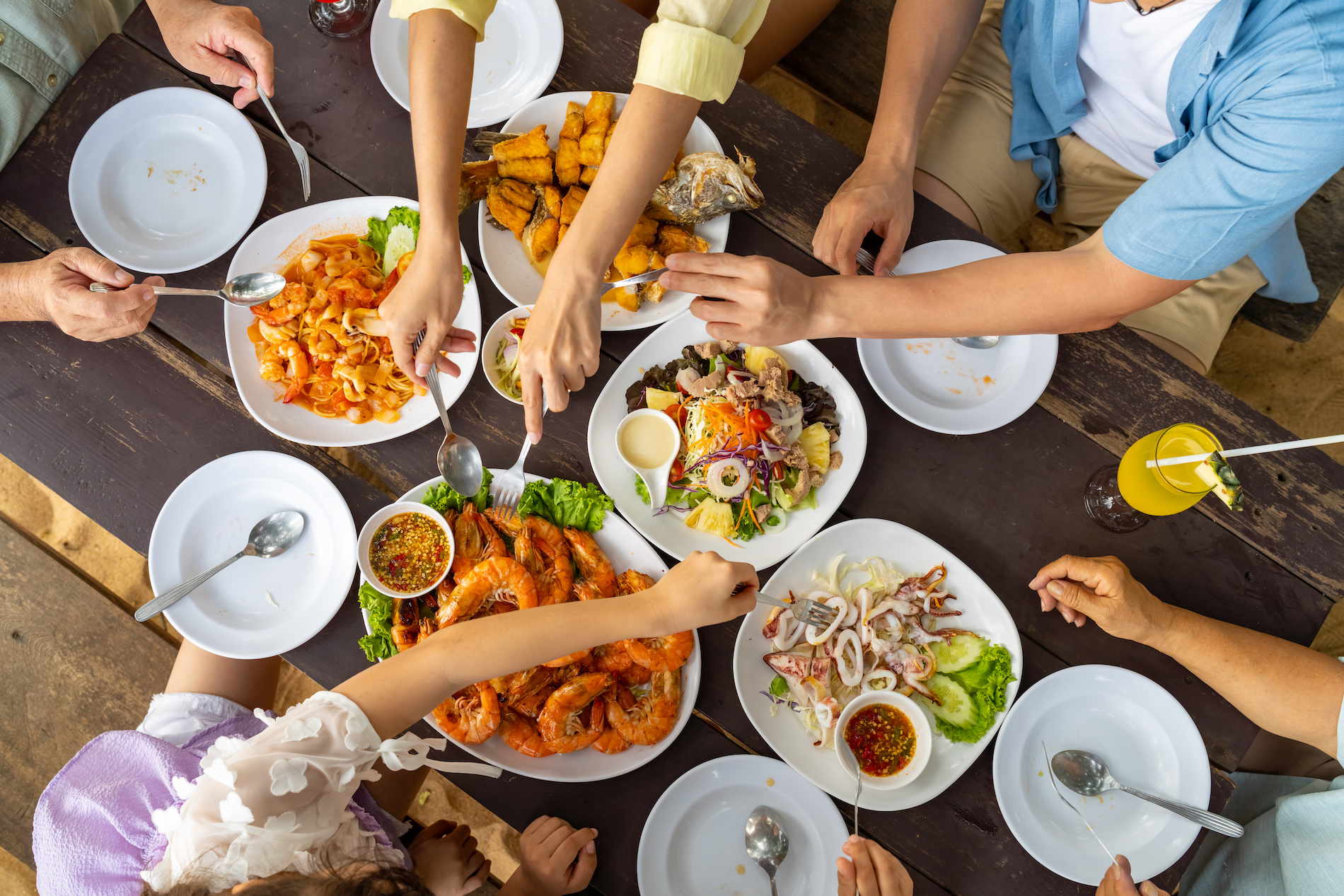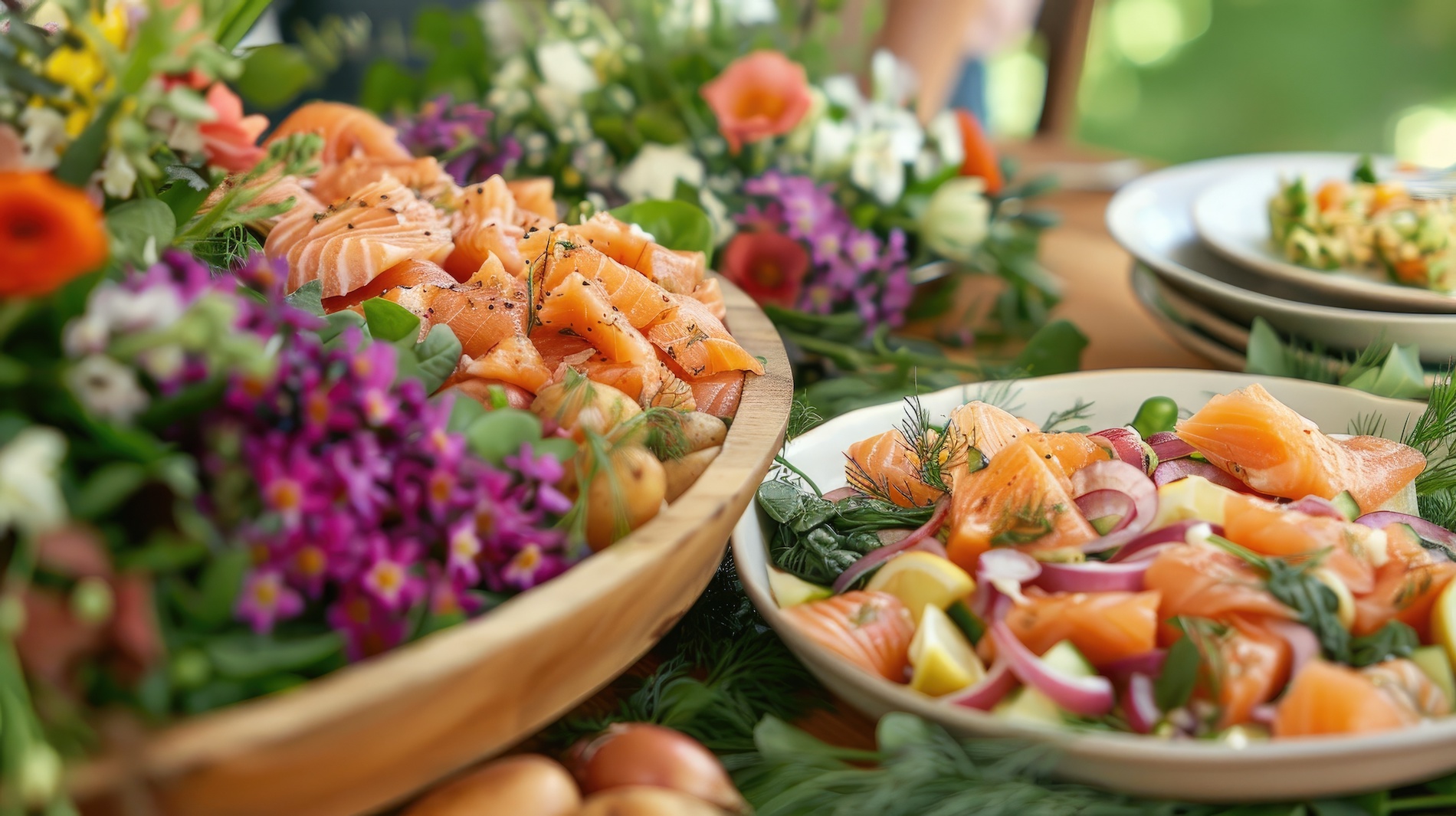Tips for shopping in summer
Ten tips to avoid food poisoning due to the high temperatures.
how to shop
Share

Food poisoning
Occurs, unfortunately, all year round but is more common during the summer months due to the high temperatures. These temperatures favour the growth of micro-organisms, because
it is easier to break the cold chain and also due to a lack of care with prevention and hygiene measures.
Danger zone
- Foods we must keep an eye on: Foods made with raw egg, like mayonnaise, sauces and creams. If you buy them readymade, you should eat them quickly. If they are homemade, it’s best to throw away any leftovers.
- Salads with raw vegetables and other ingredients like pasta, cheese and cold meats. They should be prepared at the time you are going to eat them and raw vegetables should be washed thoroughly.
- Fruit and vegetables. They should be kept in the fridge, in the least cold area (drawers).
- Seafood, particularly shell molluscs.
- Raw or only lightly cooked fish, like anchovies in vinegar, which should be frozen a few days before preparation to prevent anisakis.
- Raw meat and confectionery, which should be refrigerated or frozen.
- Gazpachos, particularly homemade ones, which should also be kept in the fridge.
- Ice creams, shakes, tiger nut milk and slushies, because they are sensitive to temperature fluctuations.

Summer fruit and vegetables, cleaned thoroughly
In summer, our shopping basket usually includes more fruit and vegetables, that we often eat raw, as a salad. For that reason, you need to take precautions.
They should be washed thoroughly, under the tap, even if you are going to peel them, to prevent contamination passing from the knife to the food.
You should dry them properly using kitchen paper. If you are going to eat the fruit or vegetable raw and with its skin on, such as lettuce, spinach or cucumber, you should soak them for at least 10 minutes in water with a dessert spoon of bleach (1.2 to 2ml) per litre of water and then rinse them thoroughly with plenty of water. The bleach should be “suitable for the disinfection of drinking water”.
In summary, to guarantee food safety, the following advice is essential:
- Don’t break the cold chain.
- Wash your hands thoroughly.
- Keep food refrigerated.
- Wash and disinfect fruit and vegetables.
- Check the packaging of the products you buy, it should be in perfect condition, without any dents or bulges and keep an eye on expiry dates.
- Order of shopping: first buy non-perishable products, then fresh foods and, finally, frozen foods.
- Don’t place foods and household products in the same bag.
Risk of food contamination: the “golden rules”
To prevent illness or food poisoning caused by inappropriate handling and preservation of foods, the Spanish Agency fo Consumer Affairs Food Safety and Nutrition (AECOSAN) gives us some "golden rules": Ten tips to enjoy a problem-free summer:
- Eat food that have been processed or handled hygienically.
- Cook food properly, reaching a minimum temperature of 70 ºC in the centre of the product.
- Eat food immediately after cooking to prevent the spread of germs, and never leave food at room temperature.
- Food that cannot be eaten immediately, or leftovers that you want to keep, should be kept heated, above 60 ºC, or kept cool, at a maximum of 7 ºC.
- Heat cooked food properly. Keeping soups, purées and stews warm until you are ready to eat them is preferable to leaving them to cool and reheating them. Foods that can’t be
cooked, like gazpacho or salad should be kept refrigerated. - Avoid contact between raw and cooked foods, because contamination can occur through knives, boards or cloths. Using kitchen paper is recommended.
- Ensure proper hygiene of the person who is going to handle the food and suitable cleaning of all kitchen surfaces, as well as the food storage containers.
- Keep foods out of reach of insects, rodents and pets.
- Only use drinking water, both for drinking and cooking.
- Do not eat perishable foods that are exposed to ambient temperature. In bars, cafés, restaurants, etc., all foods should be protected by cabinets and kept in the appropriate
hygiene conditions.






